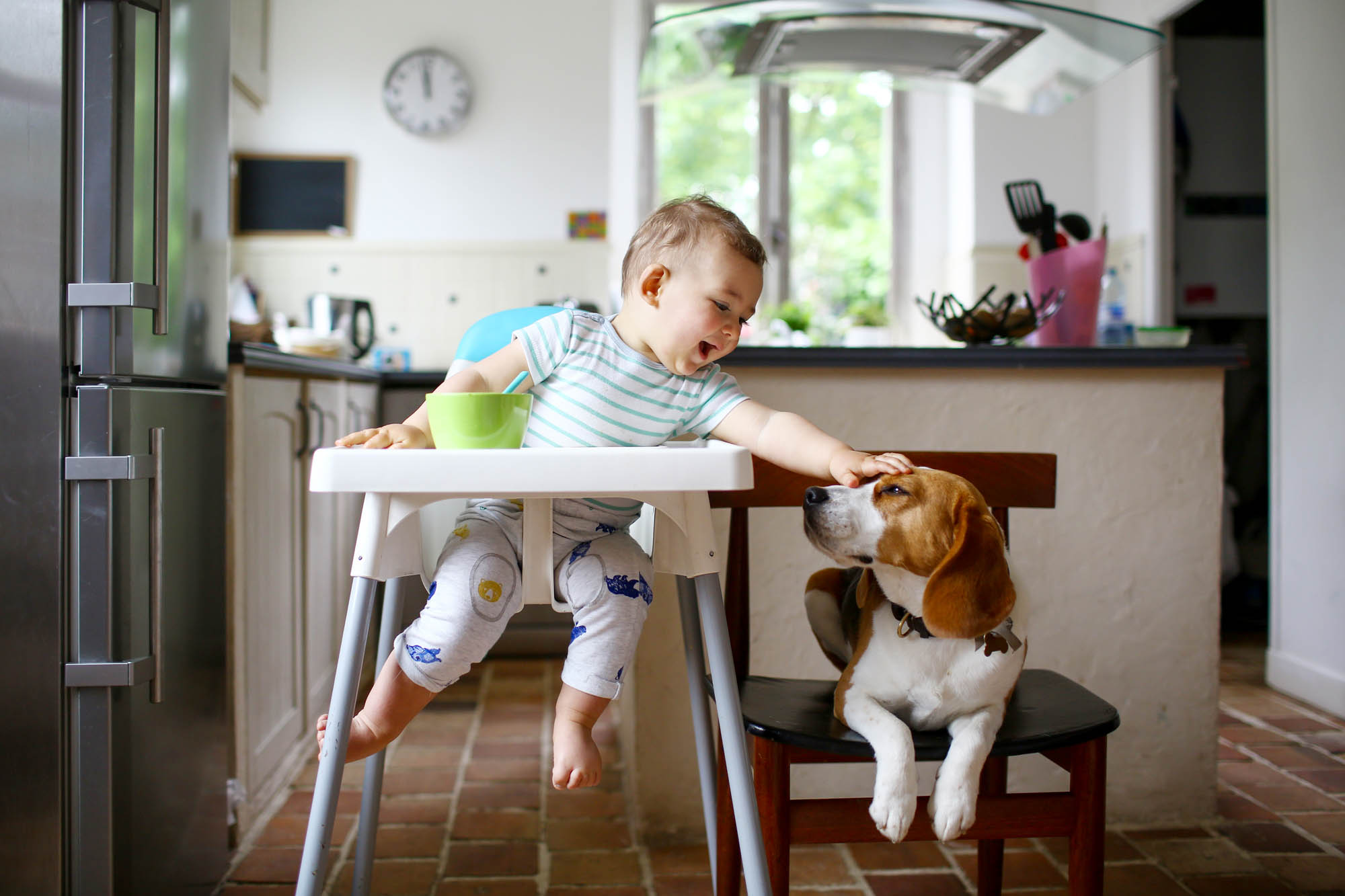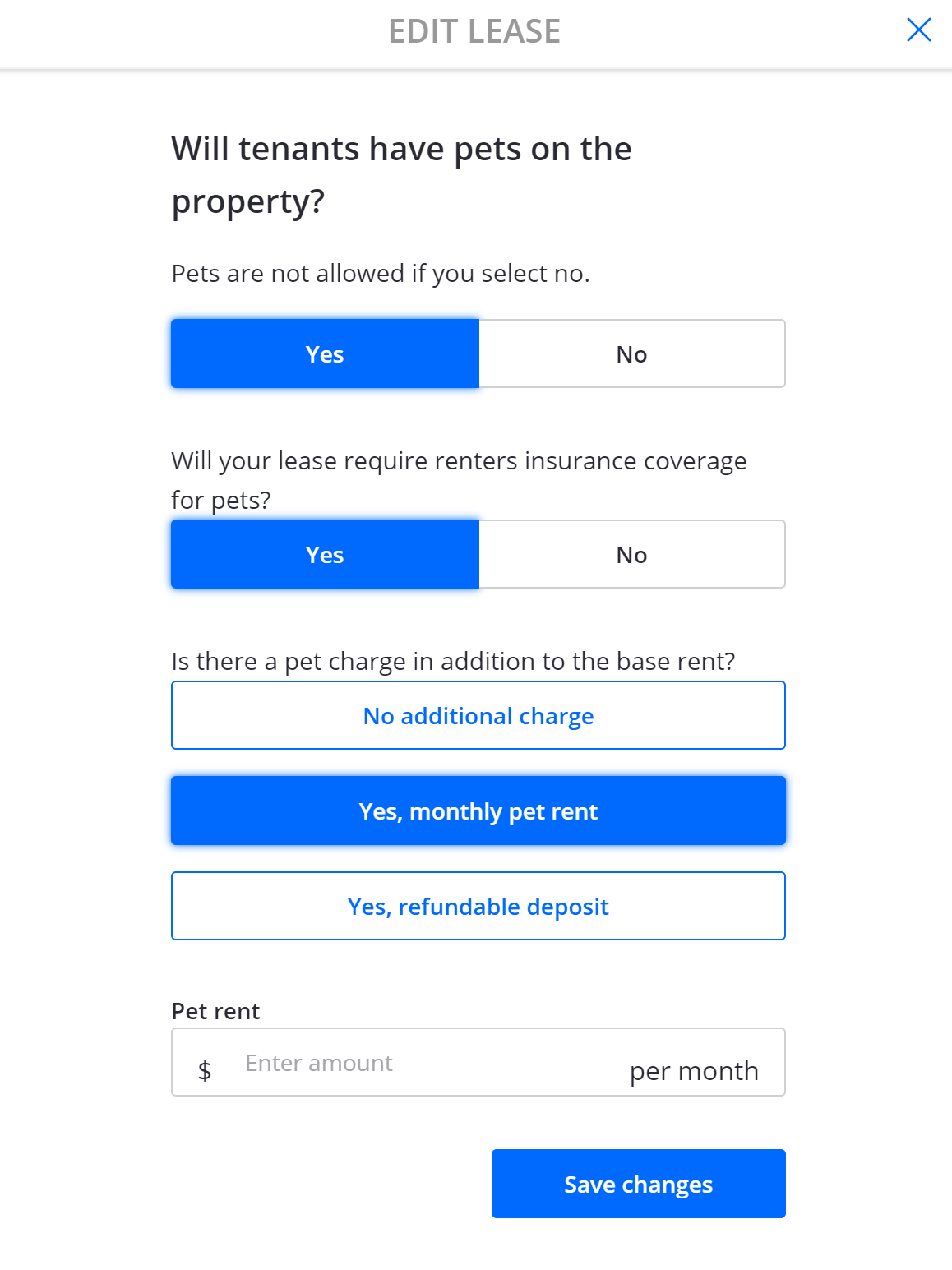Pet Rent vs. Pet Deposits and Fees

October 27, 2020
4 min read
For many people, pets are part of the family. In fact, 47% of renters in a recent Zillow survey said it was very or extremely important for a rental to allow their pets.* Considering that a significant number of renters are pet owners — 60% of single-family renters and 42% of multifamily renters, according to the same survey — you may decide to tap into that pool of animal lovers when advertising your property.
Because animals have the potential to cause damage, however, it’s also wise to plan ahead if you decide to allow pets in your rental. Charging a pet fee, pet deposit or pet rent can help mitigate your risk or cover the cost of pet mishaps, and it may also encourage greater responsibility on the part of your tenants while sharing a rental home with their pets.
What is the difference between a pet deposit and pet fee?
The biggest difference between these charges is refundability: A pet deposit is a one-time, refundable amount that a tenant pays to cover the costs of damage to the rental property caused by pets. A pet fee is also a one-time charge, but it’s a non-refundable amount that a renter pays upfront for the privilege of having a pet in the rental.
Depending on the terms of your lease, pet damage may be considered damage beyond normal wear and tear like urine stains on the carpet, or chewed or scratched floors, walls or doors.
Are pet deposits pet rent?
Unlike a one-time pet deposit or fee, pet rent is a monthly amount paid in addition to the standard rent. Because pets may cause more overall wear and tear on the home, the extra income from pet rent can help cover costs such as more frequent carpet cleaning/replacement or painting needed at a rental property that allows pets.
While both pet rent and pet deposits may be used to pay for damage caused by pets, it’s important to note that they are separate and handled differently in a rental agreement.
Should I charge a pet deposit?
Depending on where your rental is located, it may be common to ask for both a pet deposit and pet rent when renting to tenants with pets. Some landlords choose to charge a non-refundable pet fee instead of a pet deposit.
Keep in mind that neither service animals nor support animals are considered pets according to fair housing law, and you cannot charge upfront pet-related fees based on a tenant's use of a service animal, even if you have a no-pets policy.
How much should a landlord charge for pets?
Pet deposits and fees vary, but typically range from $200 to $500. Landlords may also charge a monthly rate of $25 to $100 for pet rent. Be aware that some states or municipalities have laws that limit the amount you can charge.
In Seattle, for instance, landlords can charge up to 25% of one month's rent for a pet deposit, in addition to the security deposit and other fees. For a $2,000 apartment in Seattle, that would translate into a maximum of $500 for the pet deposit.
When setting your pet deposit or pet rent, it’s important that your overall rental price remains reasonable and competitive with other rentals in your market. It’s also a good idea to include any pet fee information upfront, in your property listing details, so prospective tenants can make an informed choice when narrowing down their rental options.
Are pet deposits charged per pet?
Separate pet deposits are generally not charged for each individual pet — clearly, a deposit for every goldfish would not go over well with most renters. However, the total amount of your pet deposit, pet fee or pet rent may vary depending on the size, type and number of pets occupying the rental. For example, you may be justified in charging a larger deposit for two Great Danes versus three caged parakeets.
What does a pet addendum include?
If you choose to allow pets in your rental, it’s a good idea to include a pet addendum in the lease, stating any specific rules, regulations or policies related to pets on the property. By signing a pet addendum, the landlord gives the tenant permission to live in the rental with a pet if they agree to be responsible for the pet and any potential pet-related damages.
You can use Zillow Rental Manager to easily upload and sign your lease and pet addendum online, or in select states, our lease builder tool allows you to create and customize your lease, including pet fee, pet deposit or pet rent amount.

To learn more about the do’s and don’ts of managing a successful pet-friendly rental, check out our free eBook, Pets and Your Rental Property, or visit Zillow Rental Manager.
* Zillow Group Consumer Housing Trends Report 2020
Connect with us!
Learn how Zillow Rentals can help you reach your goals.
Stay informed. Stay ahead.
Access exclusive industry insights, market trends, and expert tips. Subscribe now to receive quarterly Zillow Rentals newsletters!